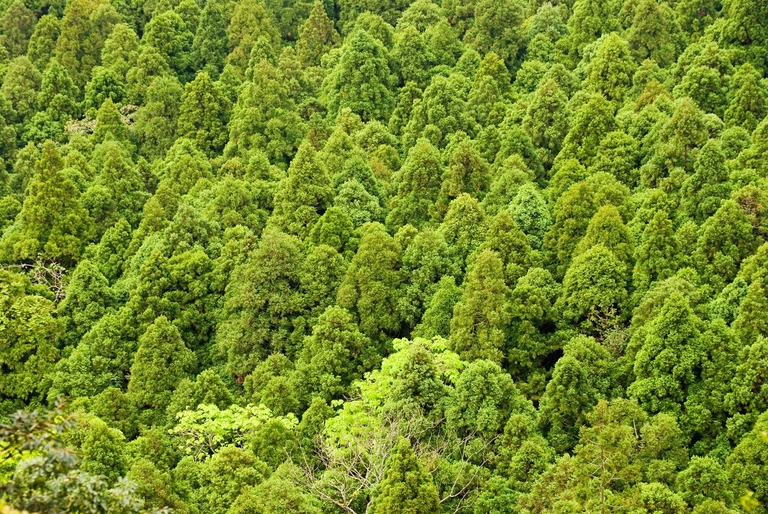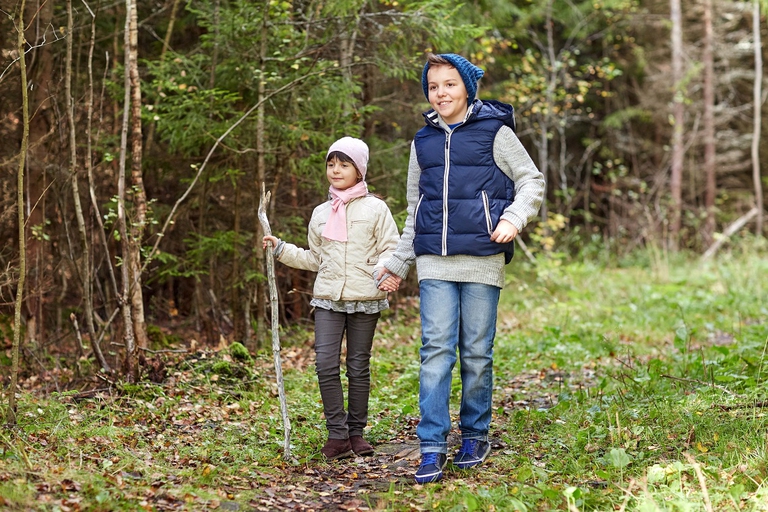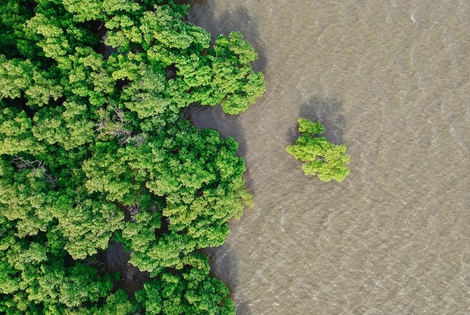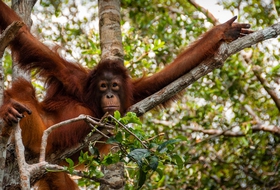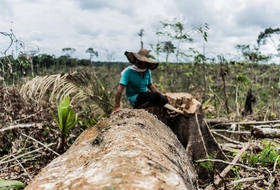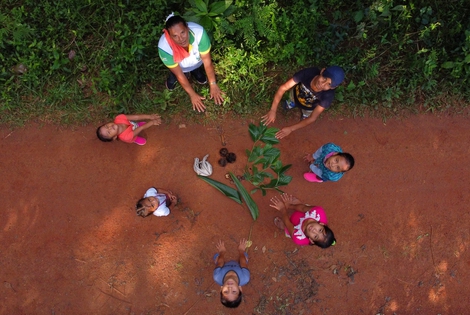
The Amazon became an alternative classroom during the pandemic. Now, the educational forest in Batraja, Bolivia, lives on to teach children and adults the value of nature.
Our species took its first steps in a world covered in trees. Today, forests offer us sustenance, shelter, and clean the air that we breathe.
Forests cover one-third of the Planet and play a crucial role for human beings. In fact, 1.6 billion people depend on them for their livelihoods. These ecosystems are also an incredible treasure trove of biodiversity, home to 80 per cent of terrestrial animal and plant species. Moreover, thanks to photosynthesis, forests are our best allies in reducing atmospheric CO2 concentrations.
In 2012, the United Nations established 21st March as the International Day of Forests, an occasion to raise awareness about the vital importance of all the trees that make up the Earth’s “green lung”.
Despite the many environmental, economic, and social advantages, and the evidence that our survival is deeply intertwined with that of forests, our species is destroying this precious resource. Deforestation continues at an alarming rate, with over 13 million hectares of forests destroyed globally every year. The destruction of the Amazon, the planet’s last major green lung, has also been on the rise again.
“Deforestation is the second contributor to climate change after fossil fuels. Simply consider the fact that every year, two billion tonnes of CO2 are absorbed by trees, which act as a major carbon sink,” explains Douglas McGuire, Coordinator of the Forest and Landscape Restoration Mechanism at the FAO. In fact, 20 per cent of trees’ mass is made up of carbon.
There are many reasons to save our forests, but trying to give an economic value to a tree might actually be demeaning – like putting a price tag on a priceless resource. Trees are the most ancient living beings on the planet. When our species was in its infancy, trees had already been around for hundreds of millions of years, providing shelter from predators and giving us oxygen, food, and resources, just like they keep doing today. We need to protect them, at all costs.
The 2021 edition is dedicated to forest restoration, promoting the sustainable management of these precious resources. A restorative approach to forests can be a powerful way of preserving our planet’s biodiversity, fighting climate change, and fostering economic activity, helping to create jobs and improve people’s lives. The theme chosen for this year is in keeping with the UN Decade on Ecosystem Restoration, whose goal is to restore 350 million hectares of degraded land by 2030.
All over the world, people and institutions are invited to organise activities at the local, national, and international level to promote the safeguarding and restoration of forests and trees.
The 2020 edition of the International Day of Forests was dedicated to the indissoluble union between forests and biodiversity. These ecosystems – home to four-fifths of terrestrial species – are severely threatened, given that we are witnessing what many scientists believe to be the sixth mass extinction in the planet’s history.
“The health of our ecosystems is declining at unprecedented speed and species extinction rates are accelerating,” declared UN Secretary-General António Guterres. “We must act quickly to reverse this. Safeguarding forests is part of the solution”.
In order to safeguard and give value to our forests, we first need to know them. This is why the 2019 edition was dedicated to the importance of environmental education, using the motto “Learn to love forests“. Education plays a vital role in sustainable forest management and the protection of biodiversity. Knowledge generates respect and, often, love.
First of all, it’s important to teach children that safeguarding forests is crucial to our future and that their importance will only increase as the world population grows. Teachers and parents thus have a vital role in helping children feel connected to nature, fostering an awareness of the benefits of forests and trees among the next generation. Investing in forest education should be seen as a priority – because you’re never too young to get to know and love forests.
In 2018, the International Day of Forests was dedicated to “Forests and sustainable cities”, aiming to highlight the importance of green spaces in urban environments for people’s well-being.
The world’s urban population has never been higher, and it’s set to keep growing: by 2050, six billion people – 70 per cent of the global population – will live in urban areas. However, rapid urbanisation should not necessarily mean out-of-control urban pollution. Trees and parks help make cities greener, healthier, happier places, offering natural spaces, filtering unhealthy pollutants, and mitigating the effects of climate change.
The theme in 2017 involved promoting the idea of forests as “nature’s powerhouse”, highlighting their importance in providing renewable fuel and energy for our species since we discovered fire.
“To build a sustainable, climate-resilient future for all, we must invest in our world’s forests. That will take political commitment at the highest levels, smart policies, effective law enforcement, innovative partnerships and funding. On this International Day of Forests, let us commit to reducing deforestation, sustaining healthy forests and creating a climate-resilient future for all,” said former UN Secretary-General Ban Ki-moon.
Siamo anche su WhatsApp. Segui il canale ufficiale LifeGate per restare aggiornata, aggiornato sulle ultime notizie e sulle nostre attività.
![]()
Quest'opera è distribuita con Licenza Creative Commons Attribuzione - Non commerciale - Non opere derivate 4.0 Internazionale.
The Amazon became an alternative classroom during the pandemic. Now, the educational forest in Batraja, Bolivia, lives on to teach children and adults the value of nature.
Bangladesh suffered widespread damage as a result of Cyclone Amphan. Yet the Sundarbans mangrove forest acted as a natural barrier protecting the country from further destruction, as it has done countless times before.
On top of a 2.4 million dollar compensation, the indigenous Ashaninka people will receive an official apology from the companies who deforested their lands in the 1980s.
The tapir was reintroduced into Brazil’s Atlantic Forest, the country’s most at-risk ecosystem. The species can play a key role in the forest’s recovery.
Forests are home to 80 per cent of the world’s terrestrial biodiversity. This year’s International Day of Forests highlights the urgent changes needed to save them.
After a legal battle that lasted two years, Indonesia’s Supreme Court has revoked the permit to mine for coal in the forests of South Kalimantan in Borneo.
The list of human and animal victims of the Australia wildfires keeps growing – one species might already have gone extinct – as the smoke even reaches South America.
Areas where the FARC guerrilla used to hold power in Colombia have faced record deforestation. Farmers cut down trees, burn land and plant grass for cows. Because, “what else can we do for a living here in the Colombian Amazon”? An intimate report from the heart of the felled forest in Caquetá.
Refusing the anthropocentric vision and respecting the laws of ecology is the only way to safeguard the future of our and all other species, Sea Shepherd President Paul Watson argues in this op-ed.
